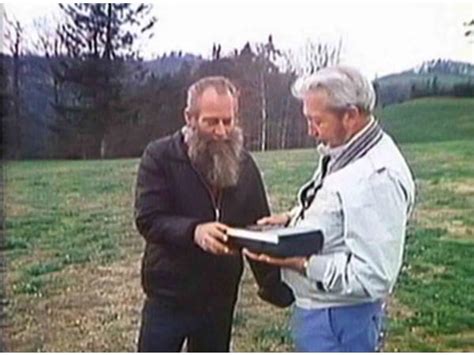A Quote by Richard Dawkins
What is interesting about the scientific world view is that it is true, inspiring, remarkable and that it unites a whole lot of phenomena under a single heading.
Quote Topics
Related Quotes
Certainly I see the scientific view of the world as incompatible with religion, but that is not what is interesting about it. It is also incompatible with magic, but that also is not worth stressing. What is interesting about the scientific world view is that it is true, inspiring, remarkable and that it unites a whole lot of phenomena under a single heading.
As time passed I became an avid reader of popular scientific books, wanting to know as much as I could about the world in which I lived. Gradually I began to see a pattern of nonsense in much scientific writing. Scientific explanations given regarding the origins or functioning of various phenomena simply didn't make sense.
The view is often defended that sciences should be built up on clear and sharply defined basal concepts. In actual fact no science, not even the most exact, begins with such definitions. The true beginning of scientific activity consists rather in describing phenomena and then in proceeding to group, classify and correlate them.
One of the greatest accomplishments of Western civilization is the development of the scientific method and the scientific disposition, which entail the development of falsifiable hypotheses about the world and the unwillingness to take unverified and untheorized claims about the world as truth, simply because someone states that they are true.
The true scientific understanding of the nature of existence is so utterly fascinating; how could you not want people to share it? Carl Sagan, I think, said 'when you're in love, you want to tell the world.' And who, on understanding a scientific view of reality, would not, as it were, fall in love and want to tell the world.
The Scientific Revolution, that remarkable transformation of European thought that occurred between approximately 1550 and 1700, brought with it an ascendancy of the experimental method and the refusal to believe any explanation of natural phenomena that could not be proven to the satisfaction of the empirical observer.
How could you ask me to believe in God when there's absolutely no evidence that I can see? I do believe in the beauty and the awe-inspiring mystery of the science that's out there that we haven't discovered yet, that there are scientific explanations for phenomena that we call mystical because we don't know any better.
The new paradigm may be called a holistic world view, seeing the world as an integrated whole rather than a dissociated collection of parts. It may also be called an ecological view, if the term "ecological" is used in a much broader and deeper sense than usual. Deep ecological awareness recognizes the fundamental interdependence of all phenomena and the fact that, as individuals and societies we are all embedded in (and ultimately dependent on) the cyclical process of nature.
We said that a single injustice, a single crime, a single illegality, particularly if it is officially recorded, confirmed, a single wrong to humanity, a single wrong to justice and to right, particularly if it is universally, legally, nationally, commodiously accepted, that a single crime shatters and is sufficient to shatter the whole social pact, the whole social contract, that a single legal crime, a single dishonorable act will bring about the loss of ones honor, the dishonor of a whole people. It is a touch of gangrene that corrupts the entire body.
Bicycling unites physical harmony coupled with emotional bliss to create a sense of spiritual perfection that combines one's body, mind and spirit into a single moving entity. Bicycling allows a person to mesh with the sun, sky and road as if nothing else mattered in the world. In fact, all your worries, cares and troubles vanish in the rear view mirror while you bicycle along the byways of the world: you pedal as one with the universe.



































